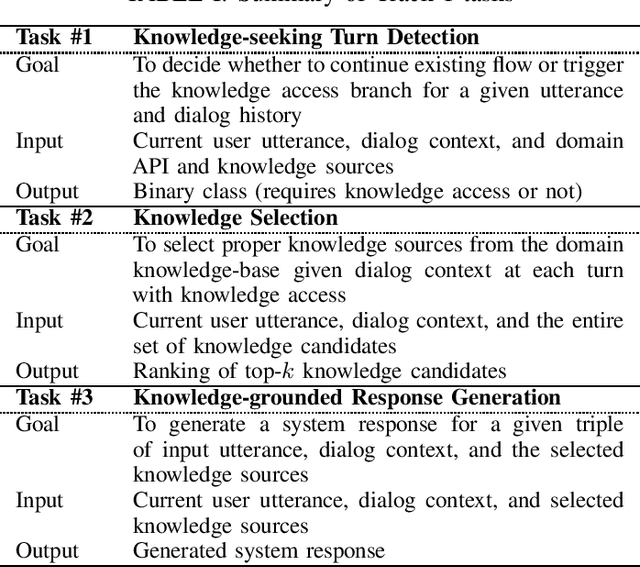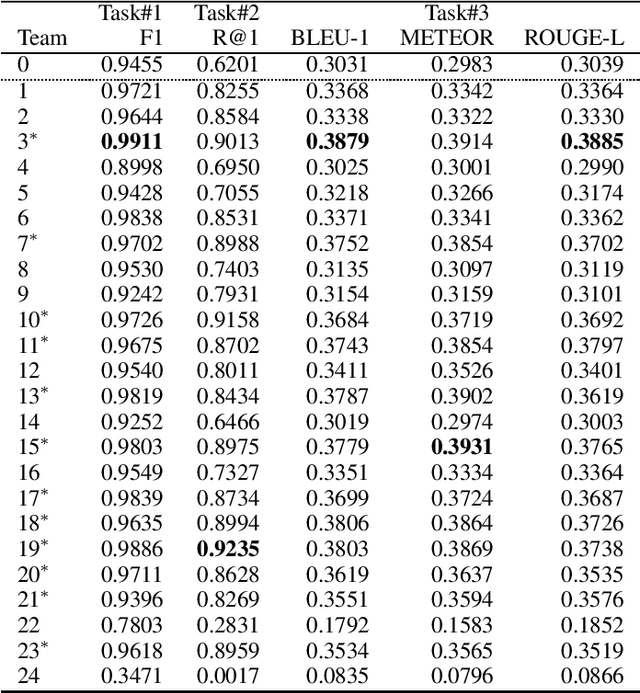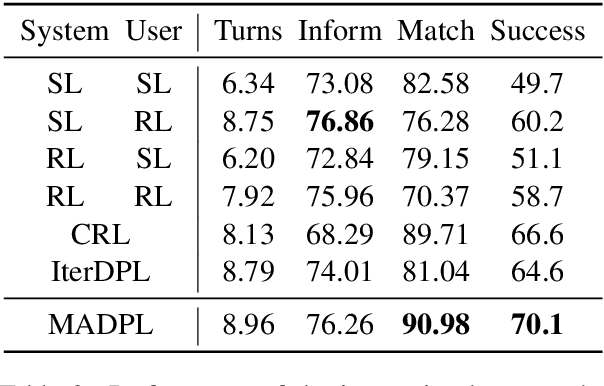Runze Liang
EJ
Overview of the Ninth Dialog System Technology Challenge: DSTC9
Nov 12, 2020



Abstract:This paper introduces the Ninth Dialog System Technology Challenge (DSTC-9). This edition of the DSTC focuses on applying end-to-end dialog technologies for four distinct tasks in dialog systems, namely, 1. Task-oriented dialog Modeling with unstructured knowledge access, 2. Multi-domain task-oriented dialog, 3. Interactive evaluation of dialog, and 4. Situated interactive multi-modal dialog. This paper describes the task definition, provided datasets, baselines and evaluation set-up for each track. We also summarize the results of the submitted systems to highlight the overall trends of the state-of-the-art technologies for the tasks.
Multi-Agent Task-Oriented Dialog Policy Learning with Role-Aware Reward Decomposition
Apr 23, 2020



Abstract:Many studies have applied reinforcement learning to train a dialog policy and show great promise these years. One common approach is to employ a user simulator to obtain a large number of simulated user experiences for reinforcement learning algorithms. However, modeling a realistic user simulator is challenging. A rule-based simulator requires heavy domain expertise for complex tasks, and a data-driven simulator requires considerable data and it is even unclear how to evaluate a simulator. To avoid explicitly building a user simulator beforehand, we propose Multi-Agent Dialog Policy Learning, which regards both the system and the user as the dialog agents. Two agents interact with each other and are jointly learned simultaneously. The method uses the actor-critic framework to facilitate pretraining and improve scalability. We also propose Hybrid Value Network for the role-aware reward decomposition to integrate role-specific domain knowledge of each agent in the task-oriented dialog. Results show that our method can successfully build a system policy and a user policy simultaneously, and two agents can achieve a high task success rate through conversational interaction.
 Add to Chrome
Add to Chrome Add to Firefox
Add to Firefox Add to Edge
Add to Edge